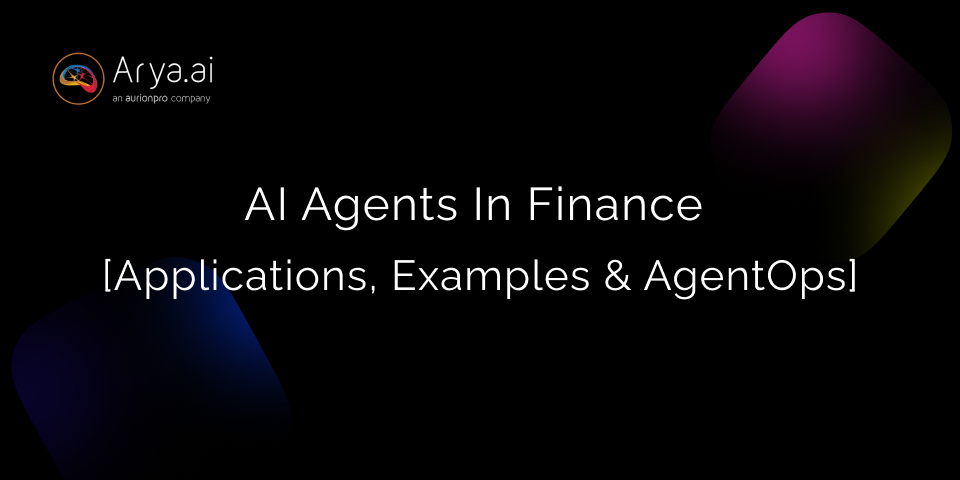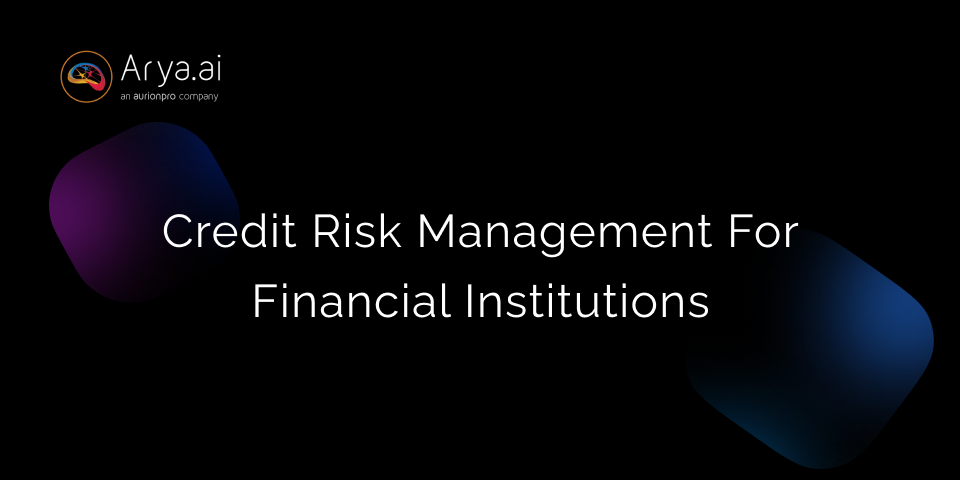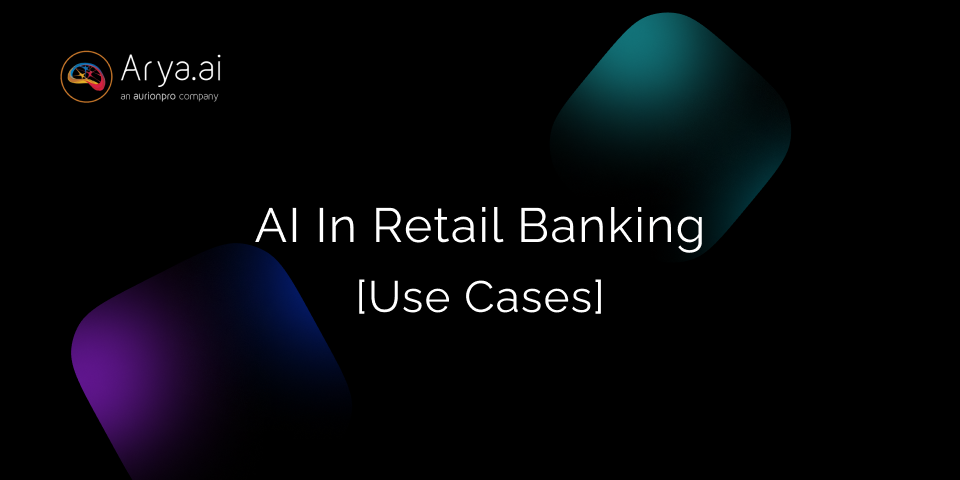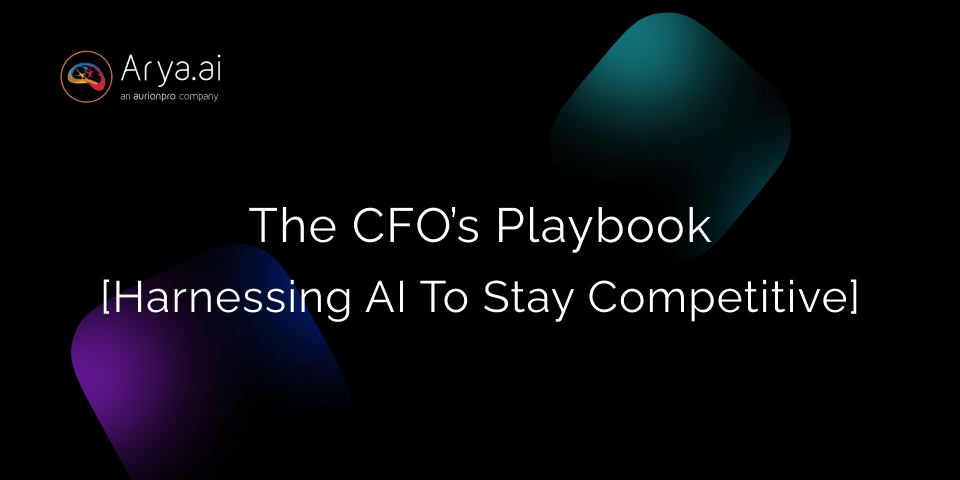Imagine having intelligent systems that can not only analyze vast datasets but also execute intricate financial tasks. From operational tasks to decision making, AI Agents are here to revolutionise how we work.
According to Stanford's latest human-centered AI report, these advanced agents are capable of exploring, strategizing, and learning on their own. These intelligent agents signify a significant advancement from conventional automation techniques. Unlike traditional systems that merely execute pre-defined instructions, these agents possess the ability to think critically, adapt to changing circumstances, and make autonomous decisions.
AI Agents represent a new era of automation that goes beyond mere task completion, showcasing the potential for artificial intelligence to tackle complex problems and operate with a degree of independence and flexibility.
In this blog, we'll explore the world of Agentic AI and how they're revolutionizing the finance landscape.
What are AI Agents?
An AI agent is a sophisticated software entity designed to perform tasks autonomously using artificial intelligence. These tasks range from simple, repetitive actions to complex problem-solving and decision-making activities. In recent years, integrating Large Language Models (LLMs) into AI agents has significantly enhanced their capabilities, particularly in understanding and generating human language.
LLMs are a specialized subset of AI that excels in processing and producing human-like text. These models can understand context, generate coherent responses, and adapt to user preferences, making interactions with AI agents more natural and effective.
By leveraging the power of LLMs, AI agents can:
- Advanced Large Language Model (LLM): This powerful LLM comprehends the user's intent and devises an action plan based on the goal and the available tools at the agent's disposal.
- Enhanced Capabilities through Tools: These tools extend the core functionalities of the LLM, providing capabilities such as web searching, document retrieval, code execution, and database integration. They may also include other AI models, allowing the agent to perform tasks like document creation, database query execution, and chart generation.
- Memory Systems: The agent utilizes memory systems to access relevant information. This includes long-term memory for databases and the ability to retain specific details over multiple steps, enabling the completion of complex action plans through short-term memory.
- Self-Reflection and Error Correction: More sophisticated agents possess the ability to identify and rectify their errors during the execution of their action plans. They can also reprioritize steps to improve efficiency and accuracy.
How Agentic AI Differs From Traditional AI?
Traditional AI systems are typically designed to enhance specific, repetitive, or routine tasks. While they provide significant value, these narrow AI systems need a more comprehensive understanding and judgment for managing complex workflows.
Agentic AI marks a transformative shift. It allows enterprise AI tools, such as AI copilots, to leverage sophisticated language understanding for more accurate instruction interpretation.
They can proactively switch between subtasks to complete workflows, make context-aware decisions, and respond intelligently to changing conditions. This agentic architecture creates new possibilities for automation, efficiency, and optimized operations.
How AI Agents Work: The Intelligent Cohesive System
AI applications in business, primarily through RPA and task-oriented models, operate predominantly at the operational level and tactical level of the decision-making tree. However, AI agents have the potential to operate comprehensively across the spectrum, spanning from operational tasks to strategic decision-making. Following are the key functions of AI Agents
- Contextualizing Data:
An AI agent can understand the context of data by using natural language processing (NLP) and machine learning algorithms. These tools allow it to interpret the meaning behind words and phrases, recognize patterns, and relate new information to previously acquired knowledge, ensuring a comprehensive understanding of the data's context. - Analyzing Data: AI agents utilize statistical techniques, data mining, and machine learning models to examine large datasets, identify trends, detect anomalies, and draw insights. By processing vast amounts of data efficiently, they can uncover hidden patterns and correlations that might be missed by human analysis.
- Reasoning with Data: Through logical inference and probabilistic reasoning, AI agents can make decisions based on data. They apply rules and algorithms to evaluate possible outcomes, weigh the pros and cons, and predict future events. This reasoning capability allows them to provide recommendations, generate hypotheses, and solve complex problems.
- Organizing Data: AI agents can systematically categorize and structure data using techniques like clustering, classification, and dimensionality reduction. They can manage and store information in a way that enhances accessibility and usability, ensuring that relevant data is readily available for analysis and decision-making. This organization helps maintain a well-ordered and efficient data management system.
AgentOps Landscape for AI Agents in Finance
The integration of AI agents into financial operations marks a new era of efficiency and innovation. In this landscape, AgentOps—a framework for managing AI agents—plays a pivotal role in enhancing the capabilities of these intelligent systems across various domains. Here's how AI agents are transforming the finance industry through four key areas:
- Data Collection and Analysis
AI agents gather, clean, integrate, and analyze data from multiple sources, ensuring a comprehensive and accurate dataset for decision-making. They generate insights, forecasts, and recommendations, enabling financial institutions to make informed decisions and stay ahead of market trends. - Process Automation and Optimization
By automating and optimizing routine and repetitive processes, AI agents significantly reduce operational costs and improve efficiency. They adeptly handle exceptions, errors, and anomalies, ensuring smooth and uninterrupted workflows. - Decision-Making and Execution
AI agents excel in making and executing complex decisions based on predefined rules or learned models. Their ability to explain decisions and actions to humans or other agents ensures transparency and accountability, fostering trust and collaboration. - Collaboration and Communication
These intelligent agents seamlessly collaborate and communicate with other agents or humans across various functions. They provide valuable feedback, suggestions, and guidance, enhancing the overall decision-making process and driving continuous improvement.
The AgentOps landscape in finance is not just about implementing AI; it's about creating a dynamic ecosystem where AI agents and humans work together to achieve unprecedented levels of performance and innovation.
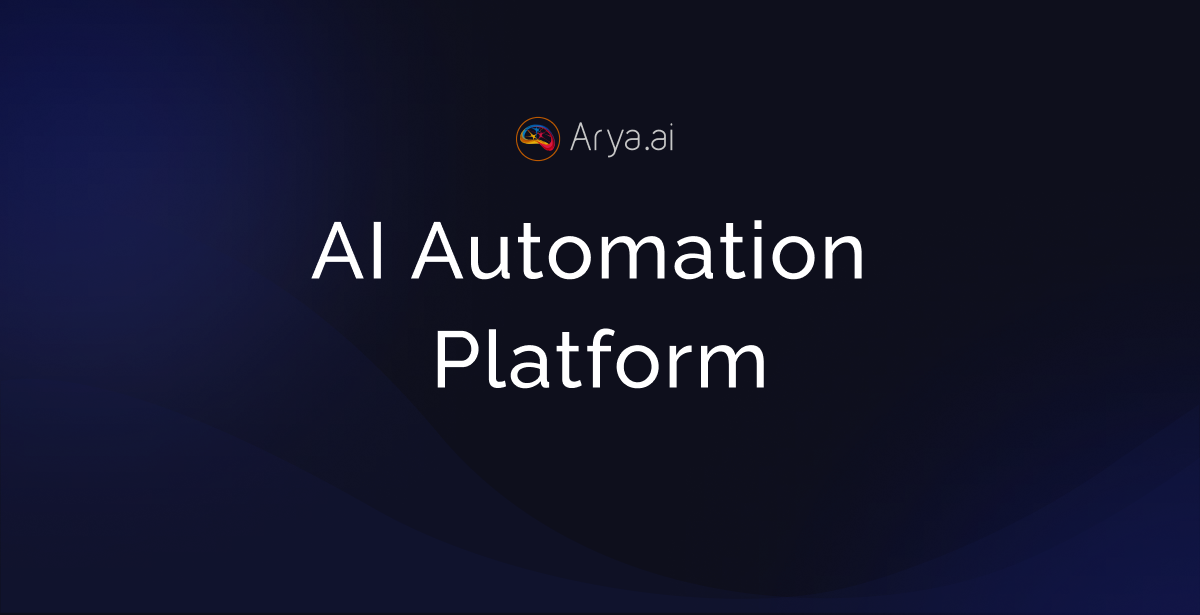
AI Agents in Finance: Examples
The finance industry has already witnessed the transformative impact of AI in automating a wide range of operational and tactical tasks. However, the future of AI in finance extends far beyond task-based automation. The next frontier lies in cognitive decisioning, where AI agents make strategic, data-driven decisions to optimize efficiency and productivity. Here's an example of how AI Agents would look like,
1. Fraud Detection Agents
These agents monitor transactions in real-time, using machine learning and anomaly detection algorithms to identify unusual patterns that might indicate fraud. Their ability to process large volumes of data quickly and spot subtle anomalies allows them to be as effective, or even more so, than human fraud analysts.
2. Risk Management Agents
By employing predictive analytics and deep learning, these agents assess financial risks, perform stress testing, and conduct scenario analysis. Their strength lies in their capacity to analyze vast datasets and identify risk factors that humans might overlook, enabling them to make informed risk assessments.
3. Credit Scoring Agents
These agents use decision trees, regression analysis, and neural networks to evaluate creditworthiness and generate credit scores. Their data-driven approach allows for objective, consistent, and rapid decision-making, akin to or surpassing human loan officers.
4. Trading and Investment Agents
Leveraging reinforcement learning and algorithmic trading, these agents can execute trades and manage portfolios based on market analysis. Their real-time processing and ability to learn from historical data enable them to make quick, accurate trading decisions, mirroring the expertise of seasoned traders.
5. Customer Service Agents
Using natural language processing (NLP) and chatbots, these agents handle customer inquiries, provide financial advice, and resolve issues. They can understand and respond to a wide range of questions, offering a level of personalized service similar to human customer service representatives.
6. Personal Financial Advisors
These agents use recommender systems and predictive analytics to provide personalized financial planning and investment advice. Their ability to tailor recommendations based on individual financial goals and behaviors allows them to emulate the nuanced advice provided by human financial advisors.
7. Compliance and Regulatory Agents
By employing text mining and rule-based systems, these agents monitor regulatory changes and ensure compliance. They can process vast amounts of regulatory information quickly, ensuring that financial operations adhere to legal standards, much like a human compliance officer.
8. Loan Underwriting Agents
These agents assess loan applications using machine learning and predictive analytics. Their ability to evaluate a wide range of data points efficiently allows them to make accurate underwriting decisions, paralleling the work of human loan underwriters.
9. Financial Forecasting Agents
Using time series analysis and econometric models, these agents predict market trends and financial performance. Their analytical capabilities enable them to forecast future financial scenarios accurately, providing insights similar to those generated by experienced financial analysts.
Implementing AI Agents in Finance Operations
- Break down the process into clear steps for successful AI agent implementation
- Learn how to select the right technologies and ensure data quality and security
- Discover best practices for monitoring and optimizing AI agent performance
1. Defining Clear Objectives and Use Cases
Before implementing AI agents in finance operations, it's crucial to define clear objectives and use cases. This step helps align the AI implementation with business goals and ensures that the technology addresses specific challenges or opportunities.
Start by identifying areas where AI agents can make the most significant impact, such as customer service, fraud detection, risk assessment, or process automation. Engage stakeholders from various departments to gather their input and understand their pain points and requirements.
2. Conducting a Thorough Needs Assessment
To define clear objectives and use cases, conduct a thorough needs assessment:
- Interview key stakeholders, including executives, managers, and front-line employees
- Analyze existing processes and identify bottlenecks or inefficiencies
- Review customer feedback and identify areas for improvement
- Prioritize use cases based on their potential impact and feasibility
3. Selecting the right AI technologies and platforms
Once the objectives and use cases are defined, the next step is to select the appropriate AI technologies and platforms. There are various AI solutions available, each with its strengths and limitations.
Consider factors such as scalability, integration capabilities, ease of use, and cost when evaluating AI platforms. Look for solutions that offer pre-built models or templates for common finance use cases, as this can accelerate implementation and reduce development time.
4. Ensuring Data Quality and Security
AI agents rely heavily on data to learn and make decisions. Therefore, ensuring data quality and security is paramount in finance operations. Poor data quality can lead to inaccurate insights and flawed decision-making, while data breaches can erode customer trust and result in legal and financial consequences.
To ensure data quality, establish data governance processes that include data validation, cleansing, and standardization. Regularly audit data sources and monitor data pipelines to identify and address any issues promptly.
Implementing Data Security Measures
To protect sensitive customer and financial data, implement the following security measures:
- Encrypt data at rest and in transit
- Implement access controls and authentication mechanisms
- Conduct regular security audits and vulnerability assessments
- Train employees on data security best practices
- Comply with relevant data protection regulations, such as GDPR or CCPA
5. Continuously Monitoring and Optimizing Agent Performance
Implementing AI agents is not a one-time event but an ongoing process. To ensure that AI agents continue to deliver value and align with business objectives, it's essential to continuously monitor and optimize their performance.
Establish key performance indicators (KPIs) to track the effectiveness of AI agents, such as customer satisfaction scores, response times, or error rates. Regularly review these metrics and conduct root cause analysis to identify areas for improvement.
Implementing a Continuous Improvement Process
To continuously monitor and optimize AI agent performance, follow these steps:
- Define relevant KPIs and benchmarks for each AI agent use case
- Set up monitoring and reporting processes to track agent performance
- Conduct regular performance reviews with stakeholders
- Identify opportunities for improvement and prioritize optimization efforts
- Implement changes and measure their impact on agent performance
Embracing the AI Revolution in Finance
AI agents are transforming the way financial institutions operate, delivering superior customer experiences, improving efficiency, and enabling data-driven decision-making. By automating tasks, analyzing vast amounts of data, and interacting with users through natural language processing, AI agents are revolutionizing the finance landscape.
As you consider the potential of AI agents in your organization, it's crucial to define clear objectives, select the right technologies, and ensure data quality and security. By continuously monitoring and optimizing agent performance, you can harness the power of AI to stay ahead in the rapidly evolving digital world.
Are you ready to embark on an AI journey and transform your finance operations? Schedule a demo with Arya AI and discover how our cutting-edge AI solutions can revolutionize your business. From real-time fraud detection to personalized financial advising, Arya AI is here to elevate your financial strategies and enhance operational efficiency. Don't miss out on the future of finance—book your demo today!
Conclusion
AI Agents are transforming the finance landscape by automating complex tasks, enhancing decision-making, and improving efficiency. With capabilities like fraud detection, risk management, and customer service, they empower financial institutions to operate at unprecedented levels. By integrating these intelligent systems, organizations can stay competitive, innovate continuously, and achieve significant operational excellence. Embracing AI Agents will be crucial for financial institutions aiming to lead in a rapidly evolving market.

